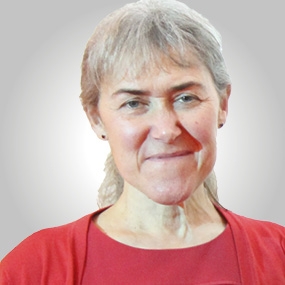#QuitForCOVID: how smoking affects your recovery from COVID-19

Consultant Orthopaedic Surgeon and Deputy Director of CPOC
I remember being told at medical school, 30 years ago, that the reason governments didn’t act to stop smoking is that smokers paid taxes and didn’t live long enough to collect lengthy pensions. Cynically, it seemed that smoking bans were only introduced after chemotherapy and other expensive treatments became possible.
People who smoke have twice as many complications after surgery as those who do not. The chest problems after an anaesthetic are well known. People who smoke also have far worse problems with wound healing, infection, blood clots, fractures joining and chronic pain.
There are several mechanisms by which smoking causes harm. Nicotine and other toxins have a direct effect on the airways. They prevent ‘cilia’, the projections from the lining cells from propelling mucus laden with bacteria and particles to the throat where it can be swallowed or coughed out. Smoking also reduces blood supply, hence the effect on bone and wounds; it makes blood stickier; hence more blood clots or strokes and it affects both inflammation and infection. The beneficial effects of stopping smoking are rapid. If smokers stop before their operation, their risk of complications reduces 19% at just four weeks and keeps improving by 19% each week.
With COVID-19, the key messages to the public have been about how to prevent getting infected, such as washing hands and social distancing. There should be more messages about how to reduce the severity of the infection. Some people who contract COVID-19 experience far worse effects than others. Some interventions are known to improve immune function, including nutrition, daily moderate exercise and smoking cessation. Interventions that help prepare for an operation might reduce the severity of this disease where the worst cases have lung problems, clotting disorders and an inflammatory ‘cytokine storm’.
Reports from China show smokers admitted to hospital with COVID-19 were three times more likely to be admitted to intensive care or to die than non-smokers. From the US, smokers admitted to hospital were twice as likely to die. A recent UK paper surprisingly did not show this excess in smokers amongst in-hospital deaths from COVID-19, but this excluded deaths in the community and adjusted for multiple other conditions that are also common in smokers.
My recent focus has been around supporting people to do more exercise – I was lead author for the Academy’s Exercise the miracle cure. Changing behaviour is very hard and usually needs environments and family to be supportive, rather than just being an individual’s ‘lifestyle choice’. Changing several behaviours at once is easier than people used to think, especially if it helps building up new habits and keeps the reason and goals in mind.
Smoking is addictive and habit forming. The brain has powerful cognitive and emotional mechanisms involved in risk perception, decision making and biases (such as optimism bias). Yet millions of us have proved it is possible to stop. The key thing is that each craving only lasts a few minutes. There are often cues in the environment or social situation. There is good advice from www.smokefree.nhs.uk, with free help.
Some tips:
- pick a good quit date
- ask the people in your life to support you. It is useful to verbalise intention
- know your reason (a future event, family member, saving for something, etc). Have a goal
- know your triggers
- choose how you will deal with cravings, when you get an urge to smoke (eg going for a brisk walk)
- choose strategies, tools or apps. A lot of help is available.
Clinicians supporting people should listen to how the patient feels and offer facts and affirmation. There are over 100 theories of behavioural change, but those with most success plan ahead for difficult times. The RCN has tips on motivational interviewing. Many clinicians already use similar skills when consulting. The Royal College of Physicians has stated that high quality smoking cessation advice should form part of public health efforts during COVID-19, to reduce demands on the healthcare system. It recommends brief, high-quality and free online training for healthcare professionals at www.ncsct.co.uk/vba.
Stopping smoking is achievable and the effects are swift and dramatic. Patients, the public and healthcare workers need knowledge, skills, tips and understanding.
Scarlett McNally
